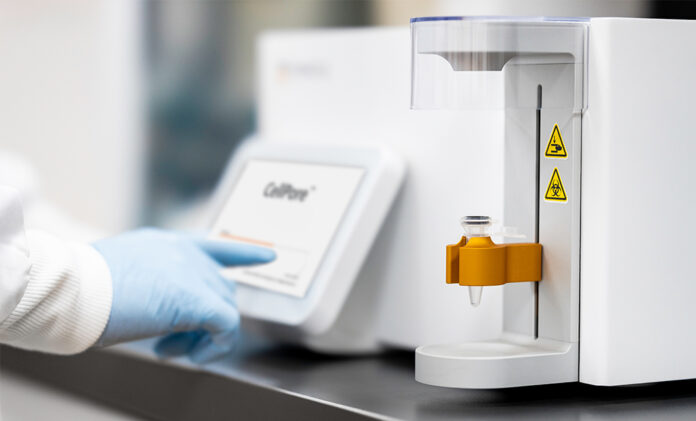
VANCOUVER, British Columbia– STEMCELL Technologies has commercially launched the CellPore™ Transfection System, providing a groundbreaking new technology with the potential to advance cell engineering research and the development of novel cell therapies to cure diseases.
The CellPore™ Transfection System represents a substantial leap forward for cell engineering researchers, offering a novel method—known as mechanoporation—for cargo delivery into mammalian cells. Unlike traditional electroporation techniques, the CellPore™ Transfection System squeezes cells to create temporary pores in the cell membrane through which the cargo is introduced.
“The launch of the CellPore™ Transfection System, together with our various cell isolation and culture product portfolios, will equip the research community with the technology to advance the field of cell engineering,” said Dr. Allen Eaves, President and CEO, STEMCELL. “This product offering has solidified STEMCELL’s leadership in cell delivery using mechanoporation technology, with promising implications for both research and clinical applications.”
In 2022, STEMCELL announced a collaboration with SQZ Biotechnologies, followed by the acquisition of substantially all of the company’s assets in February 2024, including its entire portfolio of over 400 patents and trademarks, and other intellectual property such as copyrights and trade secrets. STEMCELL then successfully leveraged SQZ’s Cell Squeeze® technology and intellectual property to commercialize and launch the CellPore™ Transfection System.
The CellPore™ platform, designed for Research Use Only applications, includes the benchtop CellPore™ Transfection System and the CellPore™ Transfection Kit 300 that features a specialized reagent kit and single-use delivery cartridges. This state-of-the-art system leverages a mechanism of rapid, controlled cell deformation within microfluidic channels to create transient pores in the plasma membrane. This facilitates the efficient and gentle delivery of target molecules, such as small molecules, nucleic acids, proteins, and gene editing complexes, into human cells. This method ensures minimal cell perturbation and maintains high cell quality, crucial for advancing biological research and the development of novel cell and gene-based therapies.
“As a company of Scientists Helping Scientists, we are excited about the positive impacts this technology will have on the life sciences sector and specifically on critical research into cancer and other devastating diseases,” concluded Dr. Eaves.

